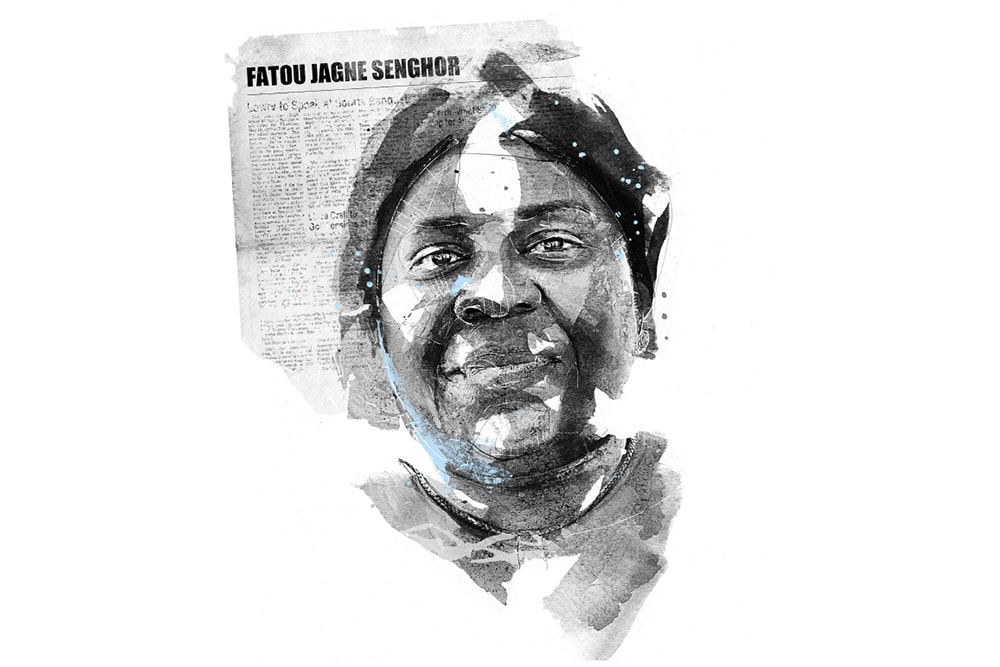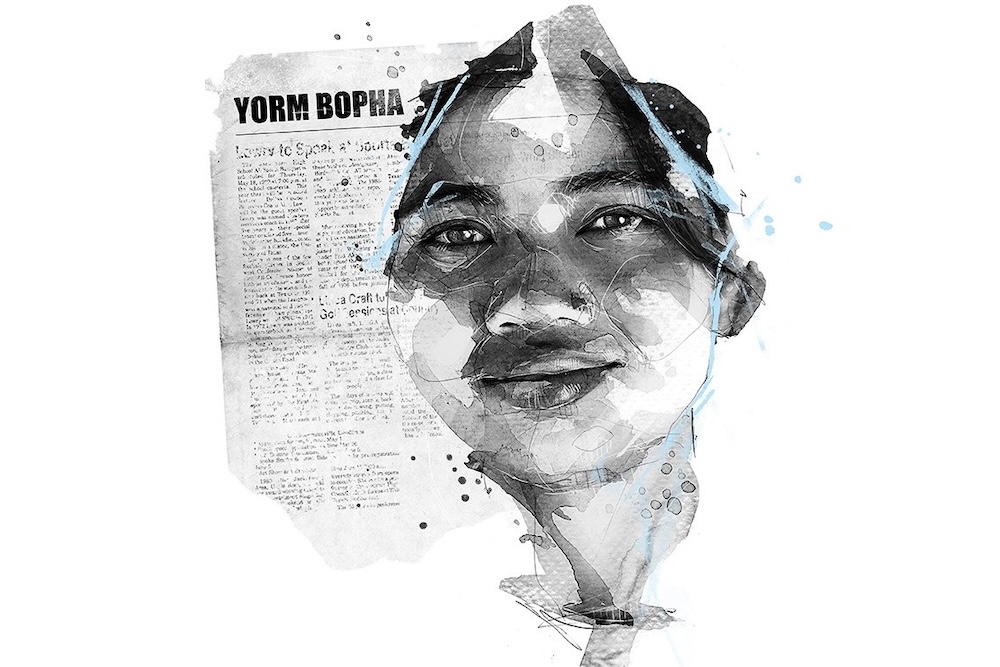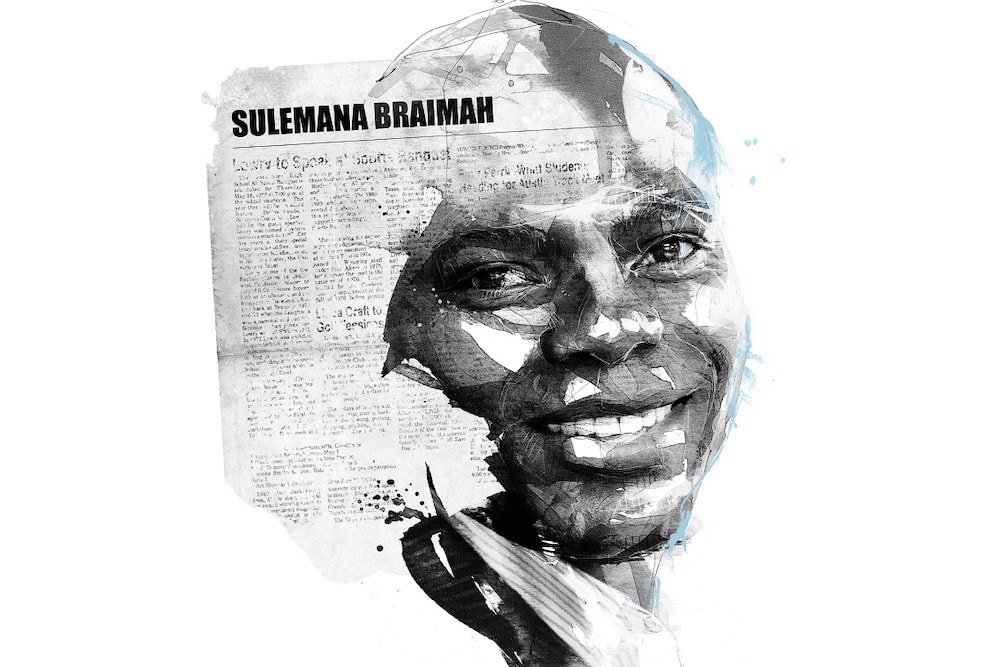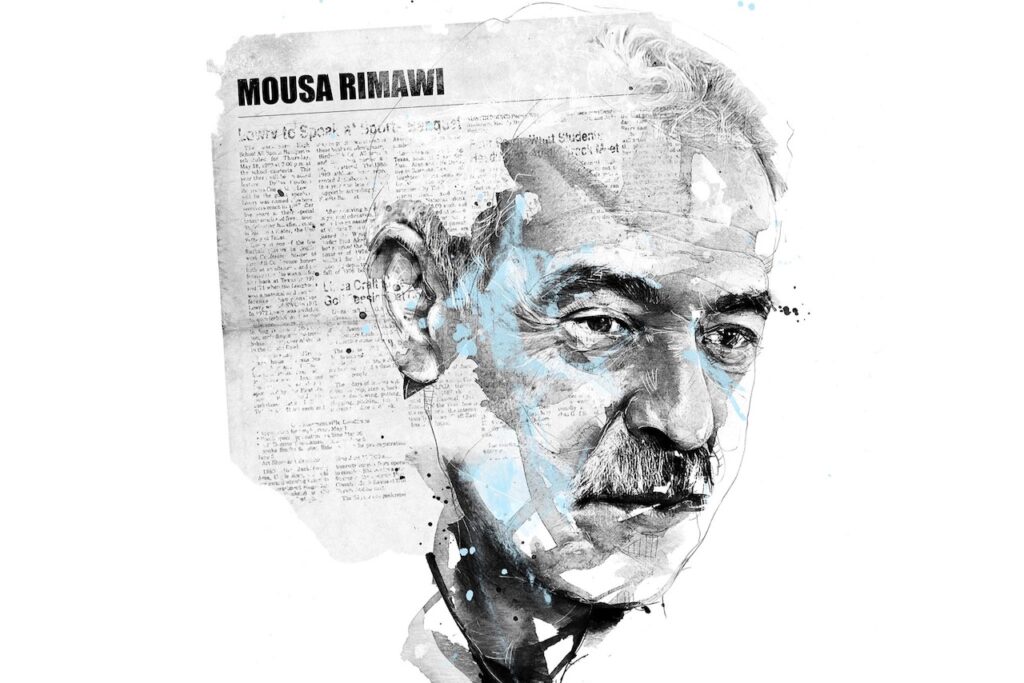Fatou Jagne Senghor has used her legal and media background to ardently defend human rights, freedom of expression and media freedom across the African continent for two decades, and has lobbied for policy reforms on international platforms. She was recently awarded the prestigious honour of Chevalièr dans l'Ordre National du Mérite by the President of France.
"The right to information and truth about past human rights violations are fundamental for accountability, to addressing impunity and to preventing recurrence of human rights violations."
The contributions by Fatou Jagne Senghor to the expansion of free expression and media freedom space have been transformative throughout the African continent. Alongside being listed among the 100 Most Influential African Women in 2019, Jagne Senghor was awarded the West African Shield Award for her work on freedom of expression and media freedom. The award recognised Jagne Senghor’s longstanding human rights work in West Africa in general, and in The Gambia in particular.
Born to a Senegalese father and a Gambian mother, Jagne Senghor began her human rights career in the Gambia in 1999 as part of the first legal team of the Institute for Human Rights and Development in Africa (a pan-African human rights organization based in The Gambia). She initiated many training programmes for the judiciary and lawyers, and started the first compilation of decisions of the African Commission on Human and Peoples’ Rights. At one point she was a desk officer providing assistance to the first ACHPR Special Rapporteur on Extrajudicial Executions.
She started off as a programme manager at ARTICLE 19 West Africa and eventually worked her way up to the position of Executive Director. She stepped down in 2022, after 20 years with the organisation. Though the impact of her two decades of work on freedom of expression and human rights issues on the continent is not always easy to see, as much of the work has taken place behind closed doors, it has been enormous.
Her background in law has allowed her to work on litigation, freedom of expression issues and policy reform with regional bodies such as the Southern African Development Corporation [SADC], the African Union [AU] and international organisations such as the UN and the European Union [EU]. She holds a Bachelors of Law, a Diploma in International Relations and Development Studies and a Bachelor of Language/comparative law. In France she attained the Masters of Law (LL.M) in Economic and Communication Law and a Master’s Degree in International and European Law in France.
The highlights of her two decades of work on freedom of expression and human rights issues on the continent include: successfully litigating for journalists and politicians arrested in Eritrea at ACHPR and developing programmes to assist journalists and human rights activists in Tunisia and the Gambia before the fall of their respective regimes.
On the less formal side, and at great personal risk, she has also provided refuge to journalists being harassed, fought for the rights of political detainees, and worked to ensure that women’s rights are at the forefront of all her advocacy.
Her work on raising awareness around legislation supporting women’s rights in Senegal, led to adoption of the parity law in 2010, advocating for equal representation of women in decision making bodies. Over a two-year period she worked with an array of organisations to develop training programmes to support women political candidates participating in the 2017 parliamentary elections and the 2018 local government elections. As a fierce advocate of gendered health responses, she fought for accessible and affordable treatment of anal fistulas for women in Senegal through information dissemination. This programme has enabled many women to receive treatment and speak out on a health issue that is often stifled.
Her soft spoken and unassuming manner belie the steely nerves that kick into action when dealing with difficult and contentious governments. Her work in The Gambia, under the autocratic rule of Yahya Jammeh, made her a household name in the West African state – and probably helped earn her the nickname “The Senegambian Iron Lady”.
Under her leadership, ARTICLE 19 West Africa has managed to advocate for significant actions by the African Commission on Human and Peoples’ Rights (ACHPR), which is based in The Gambia, considered one of the most repressive states on the continent at one time.
By shining the spotlight on the numerous human rights violations by Jammeh’s government, the organisation contributed “to the adoption of a landmark resolution against The Gambia for consistent failure to comply with the Commission’s previous recommendations on addressing the violations.”
At the same meeting, which coincided with Africa’s Human Rights Year, they lobbied for “victims to testify and meet Commissioners, as well as civil society experts. The participants discussed free expression violations at a side event, attended for the first time by ACHPR Special Rapporteur on freedom of expression, Pansy Tlakula, as well as three other Commissioners.”
With her journalism background, Jagne Senghor is well aware of the critical role of the media during transitional phases. During an October 2017 presentation focusing on the Gambian Truth, Reconciliation and Reparations Commission (TRRC) process, she recommended that the media ensure that: “their objective reporting will heighten their credibility as custodians of a fair transitional justice process. Sensationalism should not be encouraged by media managers.”
Her wealth of experience has seen Jagne Senghor appointed to numerous boards of representing media groups and human rights organisations. She also plays the role of advisor to governments and regulators who want to incorporate freedom of expression into their policies.
With the new leadership of Adama Barrow, Jagne Senghor has high hopes – and expectations. In a 2017 interview she expressed that she would like to see The Gambia become “the capital of human rights in Africa. This is the birthplace of the African Charter on Human and People’s Rights, the headquarters of the prime body which is the African Commission on Human and People’s Rights.”
Jagne Senghor was recently awarded the prestigious honour of the Knight of the National Order of Merit (Chevalièr dans l’Ordre National du Mérite) by the President of France. She was honoured for her human rights work in the Gambia, and her invaluable contribution to the democratic transition that begun in the country at the start of last year. Jagne Senghor and her team were lauded for the important role they played in defending human rights as well as their contribution to the struggle for a return to democracy over many years.
Illustration by Florian Nicolle




